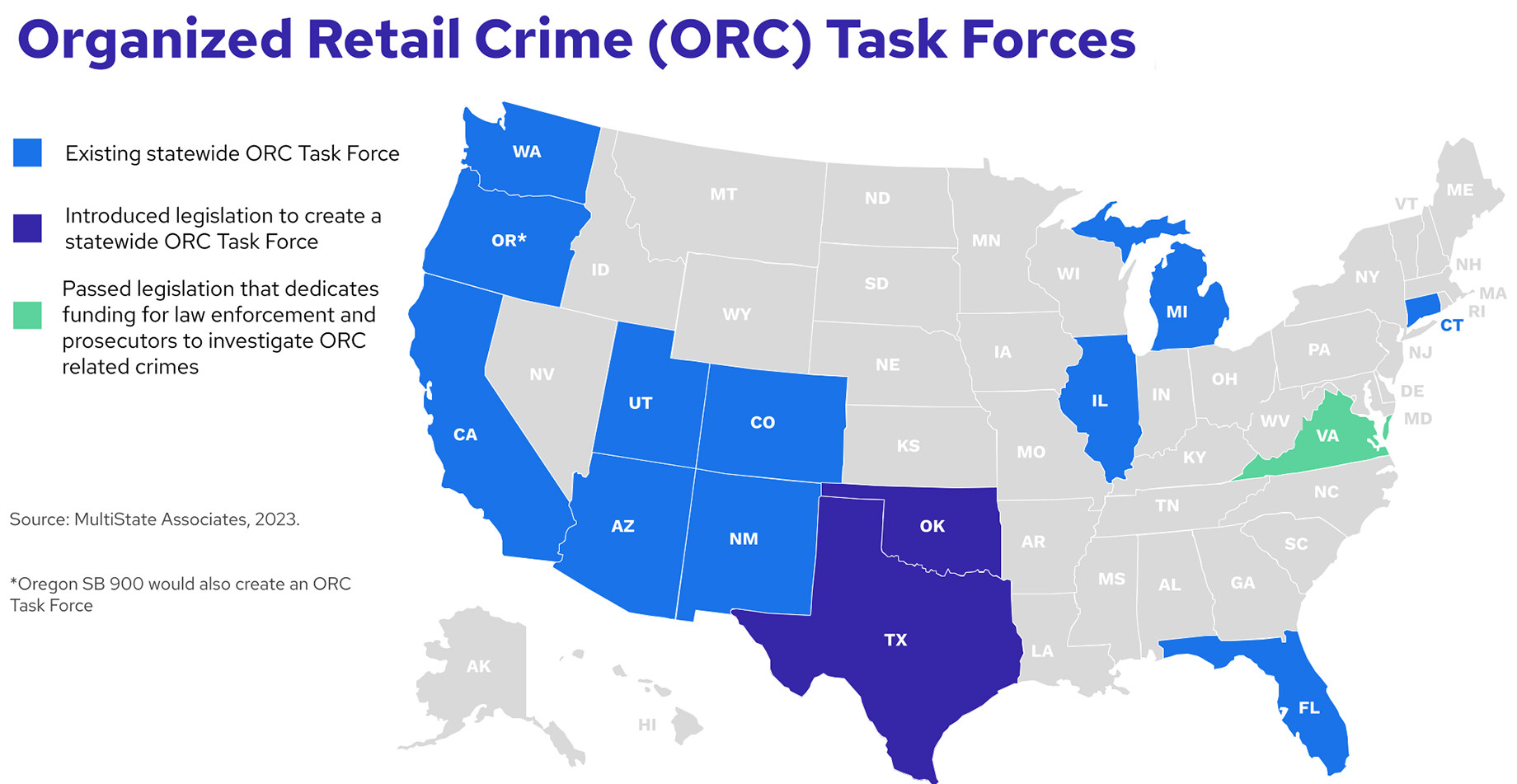Bipartisan solutions to curb organized retail crime (ORC) continue to gain momentum in states and on Capitol Hill.
The federal INFORM Consumers Act, which requires online marketplaces to collect and verify the identity of third-party sellers, many of which fence the stolen goods with impunity, is set to take effect on June 27. Following that date, the rest of the country will join the 13 states with the INFORM Act already on the books and will begin enforcing the new federal law. While increasing transparency in online marketplaces is a necessary first step to block stolen or counterfeit goods from being sold, the focus in 2023 shifts to strengthening law enforcement’s ability to swiftly target and prosecute organized criminal operations.
ICSC is working with NRF and RILA to build support for S. 140/H.R. 895, the “Combating Organized Retail Crime Act of 2023.” The measure allows for federal judges to order criminal forfeiture after convictions of organized retail theft related crimes; strengthens federal money laundering statutes allowing investigators and prosecutors to target the illegal proceeds of organized retail crime groups; ensures that members of organized retail crime groups who use the internet or other forms of interstate or foreign commerce in furtherance of their illicit activities are investigated and prosecuted; allows for federal prosecutors to utilize an aggregate total value of $5,000 or more over a 12-month period as a predicate for charging the transportation, or sale or receipt of stolen goods; and establishes the Center to Combat Organized Retail Crime at Homeland Security Investigations that combines expertise from state and local law enforcement agencies as well as retail industry representatives.
In the States
Lawmakers in Oklahoma (OK SB 674), Oregon (OR SB 900) and Texas (TX HB 1826) introduced legislation this year to create statewide ORC task forces. Eleven states have created task forces to support coordination with law enforcement, prosecutors and retailers to disrupt and dismantle retail criminal networks and protect businesses and consumers from future crimes. Attorneys General in California, Illinois and New Mexico have already carried out coordinated sting operations based on the important work their statewide ORC task forces have conducted.
Awarding grants to law enforcement for investigating ORC cases and allocating funding for existing task forces is another trend this legislative session. In the final week of session, Virginia lawmakers sent the Governor a bill (VA HB 1885) that dedicates grant funds for law enforcement to investigate, indict and prosecute organized retail crimes. The bill would also make theft exceeding $1,000 over a 90-day period a felony. Similarly, a New Mexico bill (NM HB 234) allowing aggregation of charges over a 90-day period cleared the House earlier this month.
Oregon business leaders are putting emphasis on advancing two measures that would allocate $5 million for grants to cities and counties for efforts to fight ORC (OR SB 318) and stiffen penalties for offenses (OR SB 340). And bills appropriating additional funds to existing task forces are also being considered in Arizona (AZ SB 1523 & AZ HB 2570) and Illinois (IL HB 4004).
